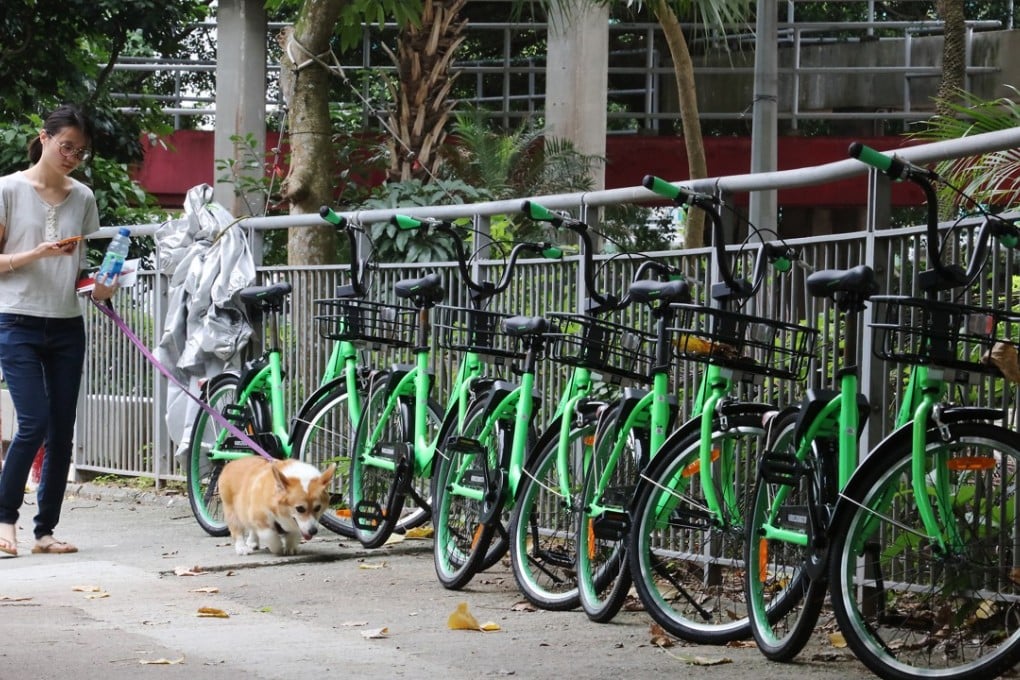Should Hong Kong look to Singapore to make its bike-sharing scheme a success?
Companies providing bike-sharing services need to be reined in, say lawmakers

For someone who rides a bicycle on a regular basis, Heidi Lau knows how to make good use of the city’s bike sharing services.
Instead of waiting for the free shuttle buses that go between her Tai Po neighbourhood and the city centre, Lau, who lives 15 minutes away from the railway station, often decides to ride.
Now, a journey that used to take her up to 20 minutes is halved.
“There are always bicycles parked outside the housing estate and I can easily scan the QR code on my mobile phone and hop on one to ride to the railway station within 10 minutes,” Lau says.
“When I get to the station, I don’t have to worry about finding a spot to park the bike or taking off the seat, as I would if it was my own bike, to make sure it doesn’t get stolen.”